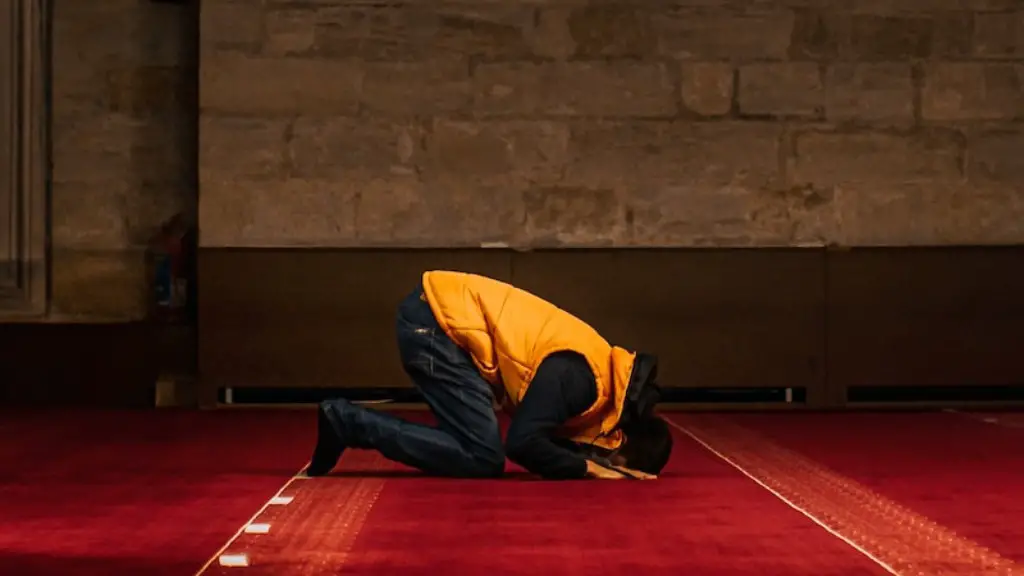Christianity
Christianity is one of the world’s major religions, with billions of followers worldwide. The focus of the faith is on the teaching of Jesus Christ and the belief that through him, salvation is possible. Christianity is divided into three major branches, Catholicism, Protestantism, and Eastern Orthodoxy. Each of these branches has various denominations, most of which have further splits, resulting in a wide variety of Christian subgroups.
Today, there are around 34,000 distinct Christian denominations. This number may sound high, but when you start to look at the different subgroups, movements, and denominations, it becomes apparent why the number is so large. Christianity is made up of Catholic, Protestant, Eastern Orthodox, and even independent and non-denominational Christians.
When looking into the different types of Christianity it is important to acknowledge the breakdown between the three main branches: Catholicism, Protestantism, and Eastern Orthodoxy.
Catholicism
Catholicism is the largest branch of Christianity. Followers of this faith believe in doctrines such as the Trinity, the resurrection of Jesus, the authority of the Catholic Church, and the redemption of sins through Jesus’ death and resurrection. Catholicism has more than 1.2 billion followers throughout the world, which makes it the largest branch of Christianity.
At its core, Catholicism is a centralized religion. The head of the religion is the pope, and all clergy members in the Catholic Church are appointed by him. As the leading authority in the church, the pope has the authority to set church doctrine, appoint bishops and cardinals, and issue decrees.
The Catholic Church is made up of an interconnected network of dioceses that are spread throughout the world. Within these dioceses, lay people, priests, bishops, and cardinals have specific roles and responsibilities. Clergy are expected to practice celibacy and obedience to the pope, while laypeople are expected to follow specific doctrines.
Protestantism
Protestantism is the second largest branch of Christianity. It originated in the 16th century, when a German monk named Martin Luther began questioning the doctrines and practices of the Catholic Church. Protesting against the church and its beliefs, Luther helped to launch the Protestant Reformation, which eventually led to the formation of Protestant churches. Protestants generally view the Bible as the highest religious authority and draw inspiration from Jesus and his teachings.
The Protestant faith is made up of several denominations, including Anglicanism, Presbyterianism, Lutheranism, Methodism, Baptism, and Pentecostalism. These denominations are united under the umbrella of Protestantism, but each has its own distinctive beliefs. For instance, Anglicans focus on community worship and a traditional liturgy while Presbyterians tend to be more focused on evangelism and social justice.
Protestantism is a decentralized faith, with each denomination having its own distinct beliefs and practices. Followers are encouraged to read and interpret the Bible for themselves and to practice what they learn. As a result, Protestantism has a wide range of traditions and practices, which can vary greatly within each denomination.
Eastern Orthodoxy
Eastern Orthodoxy is the third branch of Christianity. It is an Eastern-based faith that is practiced mainly in Eastern Europe, the Middle East, and North Africa. Eastern Orthodoxy has been in existence for almost 2,000 years and is rooted in tradition. Its followers believe in the Trinity, the Resurrection of Jesus, and the authority of the Eastern Orthodox Church.
In contrast to the hierarchical nature of Catholicism and the decentralized nature of Protestantism, Eastern Orthodoxy is more of a partnership between the church and its congregation. The church is led by hierarchs, who are appointed by the Ecumenical Patriarch in Constantinople, who serves as the head of the church. The hierarchy is made up of bishops, priests, deacons, and laypeople, each of whom plays an important role in governing the church.
Eastern Orthodoxy is unique in its prayer practices and its emphasis on icons and rituals. Followers are expected to attend church every Sunday, to pray regularly, and to observe various fasts and feasts throughout the year. They are also expected to venerate icons and to practice confession and communion.
Independent Christianity
Independent Christianity is a form of Christianity that is not associated with any of the three major branches. These churches are often small, independent congregations with their own beliefs and practices. Most independent churches are not recognized by mainstream Christianity, and many are seen as controversial or unorthodox.
Independent Christians often follow the teachings of a particular leader or school of thought. For example, some follow the teachings of preachers like Aimee Semple McPherson or the leaders of modern-day cults. Others swear allegiance to specific Bibles or books, such as the Book of Mormon. Many also adhere to particular practices or rituals.
Independent Christianity can be seen as a form of protest against traditional Christian doctrines, while others view it as a form of self-expression. As the name implies, independent Christianity is not bound by the doctrines and beliefs of the mainline Christian denominations, making it a unique and unpredictable faith.
Non-Denominational Christianity
Non-denominational Christianity is a form of independent Christianity that is focused on evangelism and mission work. Non-denominational Christians often focus on evangelism, outreach, and spreading the gospel rather than on traditional practices or doctrine. They typically reject the idea of attending a specific church, believing that their faith should be expressed through individual action rather than through organized religion.
Non-denominational Christians often draw their teachings from the Bible and view it as the ultimate guide for faith and practice. While they generally agree with the teachings of the Bible, they can differ in their interpretations, with some viewing the Bible literally while others viewing it as a metaphorical or allegorical text.
Non-denominational Christianity has become increasingly popular in recent years, with many people seeking a more personal and personalizable form of faith. This independent approach to faith can be seen as a refreshing break from the rigid structure and hierarchies of organized religion.
Conclusion
Christianity is a complex faith with many different types of believers. There are the three main branches: Catholicism, Protestantism, and Eastern Orthodoxy, as well as independent and non-denominational Christians. Each type of Christianity has its own distinct beliefs, traditions, and practices that draw from the teachings of Jesus Christ. No matter which type of Christian you are, the goal is the same: To love, serve, and worship God.
History Of Christianity
The history of Christianity is both complex and captivating. This year marks the 2000th anniversary of the birth of Jesus Christ, the central figure in Christianity. Jesus is believed to have been born in Nazareth in Palestine and is the son of God in the Christian faith. Christianity began in the first century C.E., when Jesus started his ministry. After his death and resurrection, his followers began to spread his teachings throughout the world. The great Apostle Paul was instrumental in the growth of early Christianity, traveling throughout the Roman Empire to spread the gospel.
By the 4th century C.E., Christianity had become the official religion of the Roman Empire. During the next few centuries, Christianity continued to spread around the world. In the 11th century, the Great Schism divided the Catholic and Orthodox Churches, resulting in two distinct types of Christianity. During the Reformation in the 16th century, Protestantism emerged, giving rise to a wide variety of different Christian denominations, each with its own set of beliefs and teachings.
Today, Christianity is the world’s largest religion, with more than 2 billion followers. Despite the different denominations and types of Christianity, the faith remains unified in worshipping one God and in its core belief that Jesus is the son of God and the path to salvation.
Key Figures
Christianity has been shaped by countless key figures throughout its 2000 year history. From its humble beginnings to the rise of the Protestant Reformation, the faith has been shaped by prominent religious leaders and theologians.
Jesus Christ is the central figure in Christianity and the son of God. His teachings form the basis for Christian belief, and his life is recorded in the four Gospels of the New Testament. Other key figures within Christianity include the Apostle Paul, who is believed to have been instrumental in spreading the gospel to the Roman Empire, and Martin Luther, whose protests against the Catholic Church helped launch the Protestant Reformation.
In modern times, prominent figures such as Pope John Paul II and Billy Graham have helped shape the face of Christianity. Throughout its history, Christianity has been influenced by individuals who have been devoted to their faith, and the contributions of these individuals are still felt today.
Practices And Beliefs
Christianity has a wide range of practices and beliefs that draw from the teachings of Jesus and the Bible. Common beliefs within Christianity include the belief in a single God, the divinity of Jesus Christ, the importance of sin and repentance, and the resurrection of Jesus.
The practices of Christianity vary depending on denomination and even individual believer. Common practices include attending church, reading the Bible, praying, participating in communion and other sacraments, and observing various holidays and traditions. Historically, Christianity has also been extremely active in missionary work and in charitable service.
Overall, Christianity is a faith that is based on the teachings of Jesus Christ, and its continued popularity is a testament to his life and teachings. No matter what particular denomination or type of Christianity that one follows, the core tenants of the faith remain the same: love, compassion, and service.


